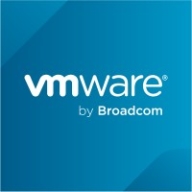

IBM Security QRadar and VMware Aria Operations for Logs compete in the security information and event management space. QRadar appears to have an advantage due to its comprehensive rule engine and scalability, making it suitable for a wide range of deployment scenarios.
Features: IBM Security QRadar is appreciated for ease in extracting information from raw logs, scalability with simple appliance addition, and a comprehensive rule engine. It also offers automatic log source identification and comes with a robust set of pre-built rules. VMware Aria Operations for Logs is noted for seamless integration with VMware environments, providing clear dashboards and automation features that alleviate ambiguities and support efficient log analysis and tracking.
Room for Improvement: IBM Security QRadar could improve its incident management functionalities and better align with Java version support. Users seek enhanced vulnerability scanning and more APIs. VMware Aria Operations for Logs users highlight the need for user interface refinement, better filter settings, and more cost-effective pricing. Users also desire enhanced third-party integration, more comprehensive dashboards, and increased cloud support.
Ease of Deployment and Customer Service: Both IBM Security QRadar and VMware Aria Operations for Logs offer robust deployment capabilities. QRadar supports hybrid cloud setups and is recognized for scalability. VMware is praised for its effective on-premises setups. IBM QRadar’s technical support is globally accessible but has inconsistent response times, whereas VMware’s support is viewed as highly responsive and well integrated within VMware environments.
Pricing and ROI: IBM Security QRadar pricing is based on events per second, which can be costly for smaller enterprises. Its licensing complexities and appliance costs are notable, but it offers strong ROI for large enterprises due to its threat detection capabilities. VMware Aria Operations for Logs is competitively priced within the VMware suite. When bundled with other VMware products, it provides a cost-effective solution for VMware-dependent environments, offering significant ROI due to easy integration and operation within VMware ecosystems.
With SOAR, the workflow takes one minute or less to complete the analysis.
AWS gives the chance to implement a solution out of the box with use cases that are already in IBM Security QRadar.
Investing this amount was very much worth it for my organization.
They assist with advanced issues, such as hardware or other problems, that are not part of standard operations.
Support needs to understand the issue first, then escalate it to the engineering team.
The support is really good; for instance, if a critical ticket is submitted, you will get paged right away as it gets logged, and their analyst will look into it, letting you know as soon as possible so you can work on it.
While support staff is knowledgeable, getting access to specialists can be challenging when dealing with the limits of a product.
Customer service and support have declined.
I did not need technical support because I am a professional with VMware.
For EPS license, if you increase or exceed the EPS license, you cannot receive events.
Since payment is based on hardware, scalability impacts are managed more effectively than with other tools paid by data volume.
It's relatively easy to find individuals with the skills to work with VMware because it is a widely spread tool.
I think QRadar is stable and currently satisfies my needs.
The product has been stable so far.
Managing a lot of data involves reliance on hardware and network performance, which are external factors that can affect stability.
It has been very stable, and every time I needed it, it was available and working.
VMware as a whole provides very stable tools.
We receive logs from different types of devices and need a way to correlate them effectively.
If AI-related support can suggest rules and integrate with existing security devices like MD, IPS, this SIM can create more relevant rules.
IBM Security QRadar does not support Canvas, so we had to create custom scripts and workarounds to pull logs from Canvas.
It would be beneficial to have a roadmap for these dashboards to ensure consistent functionality.
There is also dissatisfaction with Broadcom's broader attitude, which is prompting me to search for alternatives.
VMware Aria Operations for Logs is not a cost-effective tool.
Splunk is more expensive than IBM Security QRadar.
It was costly mainly because of the value you can get right now compared to other solutions.
It depends on how much you want to spend.
Splunk, often paid by the terabytes, becomes expensive quickly if not managed carefully.
The price has risen significantly, and for smaller customers, the cost can be up to ten times more than before.
VMware comes with a lot of packages, however, it remains too expensive.
Recently, I faced an incident, a cyber incident, and it was detected in real time.
IBM Security QRadar gives the opportunity to improve the time to market of the releases with a great evaluation of cybersecurity breaches.
IBM is seeking information about IBM QRadar because a part of QRadar, especially in the cloud, has been sold to Palo Alto.
This tool also provides greater insight when integrated with VMware infrastructure, making it more precise than other tools.
The most valuable features are log centralization and long-term retention for logs.
A valuable feature of VMware Aria Operations for Logs is its ability to allow personalization of dashboards and requests.
| Product | Market Share (%) |
|---|---|
| IBM Security QRadar | 3.8% |
| VMware Aria Operations for Logs | 1.4% |
| Other | 94.8% |


| Company Size | Count |
|---|---|
| Small Business | 90 |
| Midsize Enterprise | 36 |
| Large Enterprise | 103 |
| Company Size | Count |
|---|---|
| Small Business | 7 |
| Midsize Enterprise | 9 |
| Large Enterprise | 12 |
IBM Security QRadar (recently acquired by Palo Alto Networks) is a security and analytics platform designed to defend against threats and scale security operations. This is done through integrated visibility, investigation, detection, and response. QRadar empowers security groups with actionable insights into high-priority threats by providing visibility into enterprise security data. Through centralized visibility, security teams and analysts can determine their security stance, which areas pose a potential threat, and which areas are critical. This will help streamline workflows by eliminating the need to pivot between tools.
IBM Security QRadar is built to address a wide range of security issues and can be easily scaled with minimal customization effort required. As data is ingested, QRadar administers automated, real-time security intelligence to swiftly and precisely discover and prioritize threats. The platform will issue alerts with actionable, rich context into developing threats. Security teams and analysts can then rapidly respond to minimize the attackers' strike. The solution will provide a complete view of activity in both cloud-based and on-premise environments as a large amount of data is ingested throughout the enterprise. Additionally, QRadar’s anomaly detection intelligence enables security teams to identify any user behavior changes that could be indicators of potential threats.
IBM QRadar Log Manager
To better help organizations protect themselves against potential security threats, attacks, and breaches, IBM QRadar Log Manager gathers, analyzes, preserves, and reports on security log events using QRadar Sense Analytics. All operating systems and applications, servers, devices, and applications are converted into searchable and actionable intelligent data. QRadar Log Manager then helps organizations meet compliance reporting and monitoring requirements, which can be further upgraded to QRadar SIEM for a more superior level of threat protection.
Some of QRadar Log Manager’s key features include:
Reviews from Real Users
IBM Security QRadar is a solution of choice among users because it provides a complete solution for security teams by integrating network analysis, log management, user behavior analytics, threat intelligence, and AI-powered investigations into a single solution. Users particularly like having a single window into their network and its ability to be used for larger enterprises.
Simon T., a cyber security services operations manager at an aerospace/defense firm, notes, "The most valuable thing about QRadar is that you have a single window into your network, SIEM, network flows, and risk management of your assets. If you use Splunk, for instance, then you still need a full packet capture solution, whereas the full packet capture solution is integrated within QRadar. Its application ecosystem makes it very powerful in terms of doing analysis."
A management executive at a security firm says, "What we like about QRadar and the models that IBM has, is it can go from a small-to-medium enterprise to a larger organization, and it gives you the same value."
Manage data at scale with centralized log management, deep operational visibility and intelligent analytics for troubleshooting and auditing across private, hybrid and multi-cloud environments.
We monitor all Log Management reviews to prevent fraudulent reviews and keep review quality high. We do not post reviews by company employees or direct competitors. We validate each review for authenticity via cross-reference with LinkedIn, and personal follow-up with the reviewer when necessary.